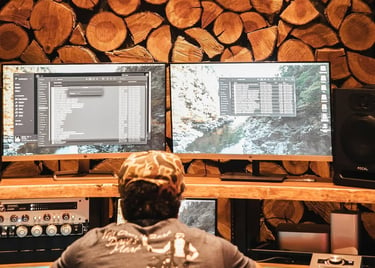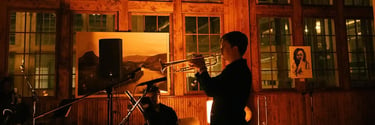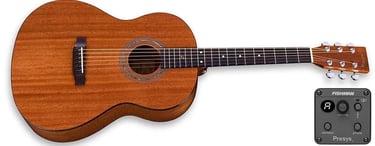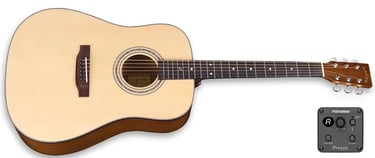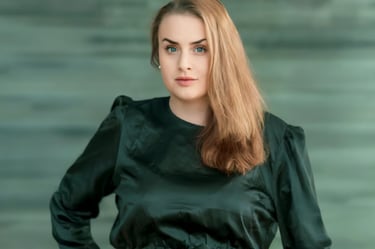" Exclusive Interview - Isa Aura on Music, Fusion, and Global Recognition"
UNPUBLISHED
9 Lounges Team
9/23/2025
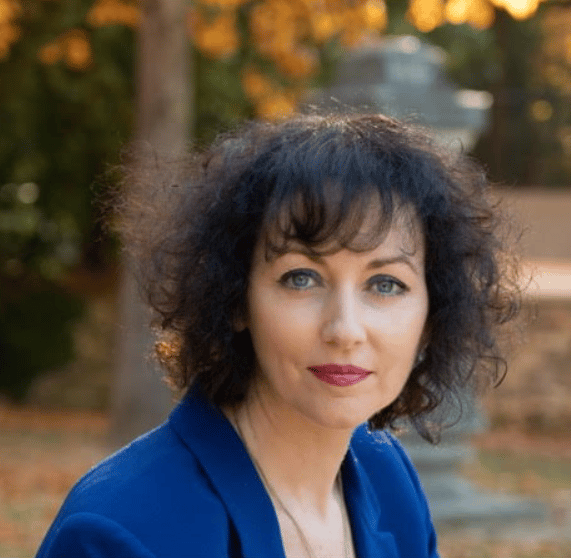

______________ Advert ______________
____________________________________
Chance and luck, quite simply. I was in high school, taking a music option, and I had signed up for the choir, which at the time offered a classical music repertoire. Then one morning, my mother and I discovered an article in the newspaper announcing an entrance exam for the lyric singing class at the Le Havre Conservatory. I showed up with a Mozart Barcarolle and was surprised to be admitted at the age of sixteen. I gave up the clarinet to devote myself to singing, and I didn't regret it because I felt completely in tune with vocal work.
Isa Aura is a genre-defying artist whose unique sound blends classical opera, electro, pop, and world music. With a rich background in opera singing and ethnomusicology, her music transcends borders, fusing traditional influences with modern sensibilities. Known for her poetic lyrics and captivating vocal timbre, Isa Aura's songs carry deep storytelling elements, drawing inspiration from personal experiences and cultural exchanges. Her collaborations span across continents, including work with artists from Senegal, India, and the US, showcasing her commitment to pushing the boundaries of musical genres. With a growing international following, Isa Aura continues to captivate listeners with her innovative approach and genre-bending artistry.
Early Journey: You began your musical path with the clarinet before fully embracing lyrical singing. What drew you to the voice as your primary instrument?
<iframe data-testid="embed-iframe" style="border-radius:12px" src="https://open.spotify.com/embed/artist/4ba4F0jnalxz5si2A6cfdD?utm_source=generator" width="100%" height="352" frameBorder="0" allowfullscreen="" allow="autoplay; clipboard-write; encrypted-media; fullscreen; picture-in-picture" loading="lazy"></iframe>
____________________________________
______________ Advert ______________
Conservatory Training: Studying under Marie-Claire Cottin at Le Havre and later with soprano Fusako Kondo at the Francis Poulenc Conservatory must have been transformative. How did those experiences shape your artistry?
You have to understand that in parallel with my singing studies at the conservatory I always continued my studies and I had to leave my hometown for Rouen then Paris, forcing me to progress technically speaking in terms of singing to be able to be admitted again and again to the conservatory. The level of requirement was not at all the same and the international competition was very tough in Paris. There were also complicated financial realities. I loved opera singing and these years brought me a lot of happy moments but at a point I no longer wanted to pursue a career as a professional opera singer. I preferred to follow another path and I discovered writing and composing songs.
Academic Excellence: You completed a doctorate in ethnomusicology at the Sorbonne, which is an incredible achievement. How does your academic research influence your songwriting and sound?
There is an obvious link between this openness to ethnomusicology and my recent musical collaborations. This openness to World music. I love discovering original sounds and it's true that beyond the song there is a little experimental side which, I must admit, attracts me irresistibly. My thesis was about the influence of non-Europea vocal techniques in contemporary Western music and I had interviewed composers such as Luciano Berio, Paul Méfano, Nguyen-Thien Dao and Jean-Claude Eloy on their approaches. Contemporary composers who had sought ways to mix cultures or musical techniques within their works. This can undoubtedly explain why I enthusiastically embarked on international collaborations such as with Gina d’Affiniam, an African from Casamance, Senegal, or on my latest title released in September Manolita with Oghamyst, an Indian and Randy Resnick, a talented American jazz saxophonist.
______________ Advert ______________
____________________________________
Fusion of Genres: Your music blends opera, electro, pop, and world music. How do you approach balancing such diverse styles while still keeping your sound cohesive and uniquely “Isa Aura”?
The link that unites all my songs is undoubtedly my vocal timbre and a way of writing my lyrics. A little poetic side also in some of them, wordplay, metaphors. I like songs with real melodies and choruses.
Breaking Barriers: Many describe your work as borderless and genre-defying. Was this fusion a natural evolution of your artistry, or was it a conscious decision to push beyond tradition?
When people tell me that my music sounds different, I take it as a compliment. Tradition doesn't interest me except in the sense of renewal or enrichment. For example, when Gina d’Affiniam and I introduce traditional African percussion or the diola into pop songs, I find that very nice. This mix of traditional music with Western popular music is a real creative quest. As for my solo songs, I don't like the idea that they could all sound alike.
Global Recognition: Your songs are broadcast not only in France but internationally. How does it feel to know that your music resonates with such a wide and diverse audience?
For an artist, discovering that their songs are being broadcast is always a pleasure and I hope that we will succeed in convincing new radio stations, particularly French ones, to take the time to listen to and discover my new tracks with a view to wider distribution.
Storytelling Through Song: Beyond technique and fusion, your songs carry a storytelling element. What role do personal experience and cultural influence play in your songwriting process?
Conveying messages or telling stories through my lyrics is something I do somewhat instinctively. Depending on the creative context and the style of music or the person with whom I am going to collaborate, without a doubt my lyrics take a specific direction. I often say that I am a kind of chameleon. I listen to music, I listen to people talking and it is difficult to explain but I write based on what I heard or what was said to me or according to my desires.
____________________________________
______________ Advert ______________
Opera Meets Electro: Opera and electro are rarely mentioned in the same breath. What inspired you to merge the classical operatic tradition with modern electronic and pop sounds?
I have classical training as an opera singer and I studied musicology, but I don't think that comes across in my songs. Maybe one day I could put a drop of opera singing into one of my songs.
Looking Ahead: As you continue to build your career, what can listeners expect from your next chapter—are you planning new singles, collaborations, or perhaps a larger project like an album?
Yes, other projects are in the works, including the release of several solo and collaborative singles. There are some great musical surprises to come.
________________________________________________________________________________________________________________________________________________________
Also Read
________________________________________________________________________________________________________________________________________________________
______________ Advert ______________
____________________________________

